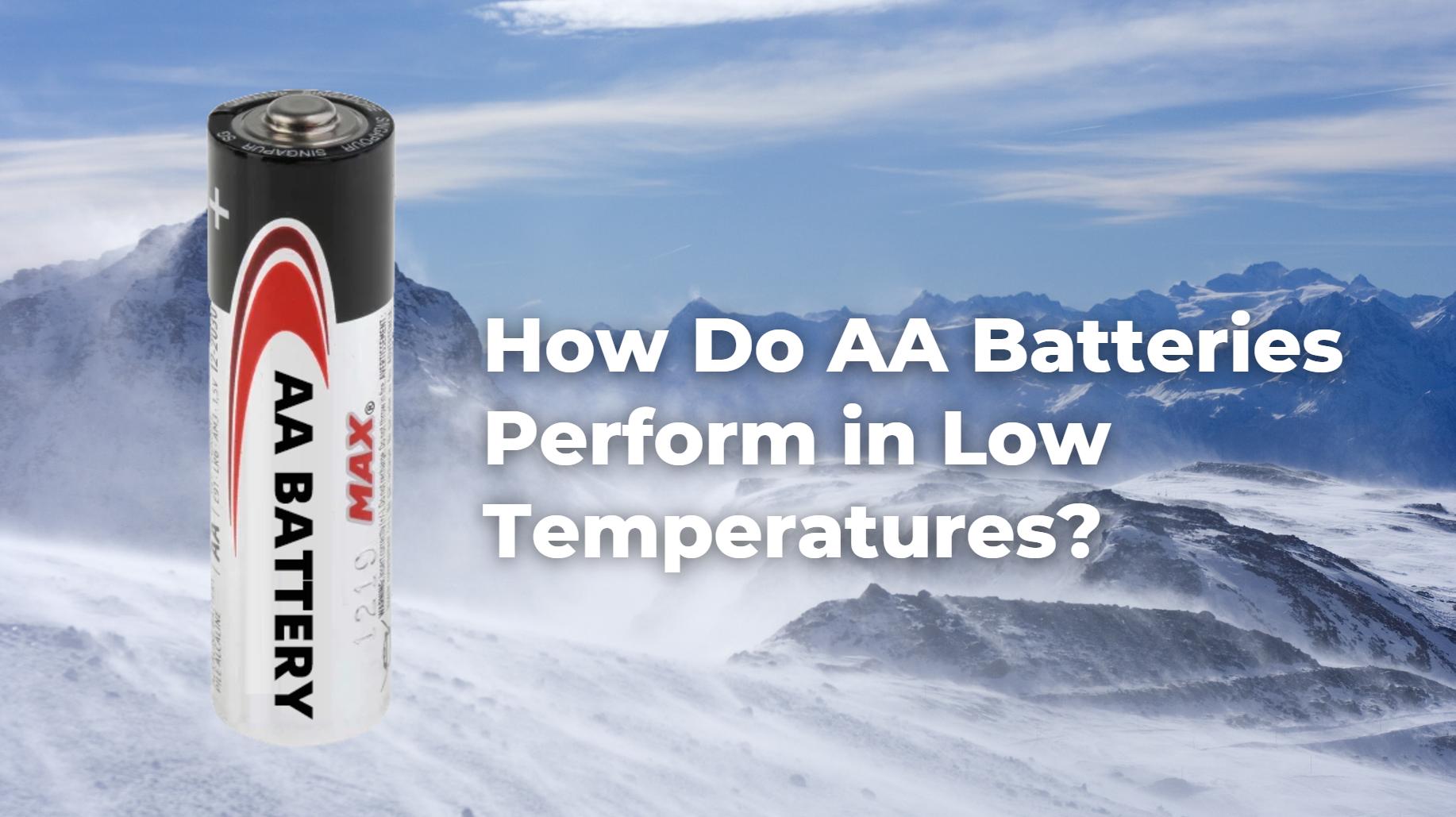When temperatures drop, the performance of AA batteries can be significantly affected. Lithium AA batteries are generally more reliable in cold conditions compared to alkaline batteries, which may lose capacity and efficiency as temperatures decrease. Understanding these differences is crucial for selecting the right battery for your needs during winter months.
Understanding Battery Chemistry and Temperature Effects
How Cold Affects Battery Performance
Cold temperatures can have a profound impact on battery performance due to the chemical reactions that occur within the battery:
Wholesale lithium golf cart batteries with 10-year life? Check here.
| Temperature Range (°C) | Effect on Alkaline Batteries | Effect on Lithium Batteries |
|---|---|---|
| Above 0 | Normal operation | Normal operation |
| 0 to -10 | Capacity drops by 20% | Capacity drops by 10% |
| Below -10 | Significant capacity loss | Still functional, but reduced performance |
Alkaline batteries tend to struggle more in cold environments, while lithium batteries maintain better performance.
Best AA Batteries for Cold Weather
When choosing AA batteries for low temperatures, consider the following options:
Want OEM lithium forklift batteries at wholesale prices? Check here.
Lithium AA Batteries
Lithium AA batteries are highly recommended for cold weather use due to their ability to perform well at low temperatures:
- Operating Temperature: Effective down to -40°C (-40°F).
- Shelf Life: Can last up to 10 years without significant capacity loss.
- Performance: Maintains voltage better than alkaline batteries when cold.
Alkaline AA Batteries
While alkaline batteries are widely available, they are less effective in cold weather:
- Operating Temperature: Performs poorly below 0°C (32°F).
- Capacity Loss: Can lose up to 60% of their capacity at freezing temperatures.
- Best Use: Suitable for devices used in moderate conditions.
Performance Comparison: Lithium vs. Alkaline in Cold Conditions
Comparing lithium and alkaline batteries reveals significant differences in performance under cold conditions:
| Feature | Lithium AA | Alkaline AA |
|---|---|---|
| Minimum Operating Temp | -40°C | 0°C |
| Capacity Retention | Better retention at low temps | Rapid decline at low temps |
| Voltage Stability | Maintains voltage longer | Voltage drops significantly |
Lithium batteries outperform alkaline batteries in both capacity retention and voltage stability during cold weather.
Recommendations for Cold Weather Use
To ensure optimal battery performance during winter months, consider these recommendations:
- Choose Lithium Over Alkaline: For devices used outdoors or in unheated areas, opt for lithium AA batteries.
- Store Batteries Properly: Keep batteries at room temperature before use; avoid exposing them to extreme cold.
- Monitor Device Usage: If using devices outdoors, check battery levels regularly and replace them as needed.
Common Misconceptions About Battery Performance in Cold Weather
Several misconceptions exist regarding battery performance in low temperatures:
| Misconception | Truth |
|---|---|
| All batteries perform poorly in the cold | Lithium batteries perform better than alkaline |
| Rechargeable batteries are always better | Not all rechargeable types perform well in cold |
| You can revive dead alkaline batteries | Once capacity is lost, alkaline batteries cannot recover |
Understanding these truths can help users make informed decisions about battery usage.
Latest News on Battery Technology and Cold Weather Performance
Recent advancements in battery technology focus on improving performance under extreme conditions, including cold weather. Manufacturers are developing new lithium formulations that enhance energy density and reduce capacity loss at lower temperatures, making them more reliable for outdoor applications and emergency situations.
Redway Expert Comment
“When it comes to battling the cold, lithium AA batteries are the clear winner due to their superior performance characteristics. Users should always consider their environment when selecting battery types, especially during winter months.” – Battery Technology Specialist
Frequently Asked Questions (FAQs)
Which type of AA battery performs better in cold weather?
Lithium AA batteries perform significantly better than alkaline batteries in cold conditions.
What is the lowest temperature lithium AA batteries can operate at?
Lithium AA batteries can operate effectively down to -40°C (-40°F).
How much capacity do alkaline batteries lose in the cold?
Alkaline batteries can lose up to 60% of their capacity at freezing temperatures.
Are there rechargeable options that work well in cold weather?
While some rechargeable NiMH batteries can function in cooler temperatures, they generally do not perform as well as lithium options.
Know more:
best aa battery for cold weather
low temperature aa batteries
can aa batteries freeze






